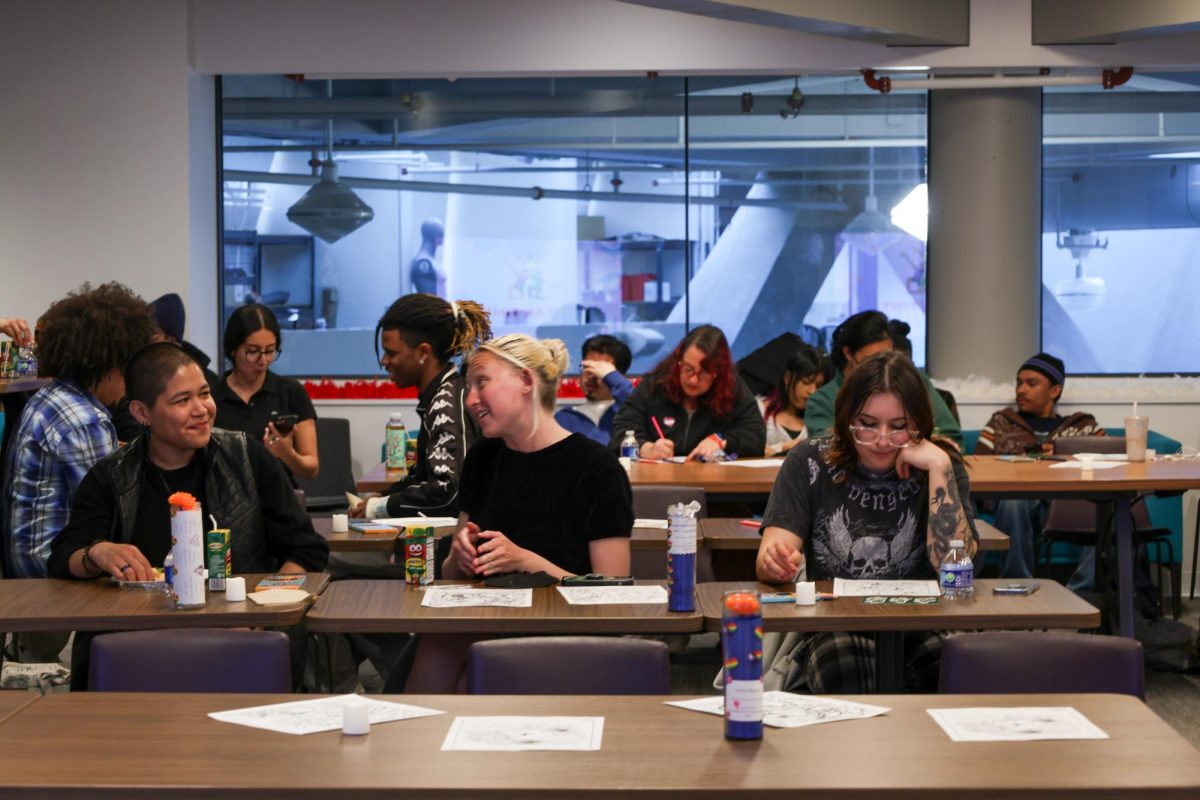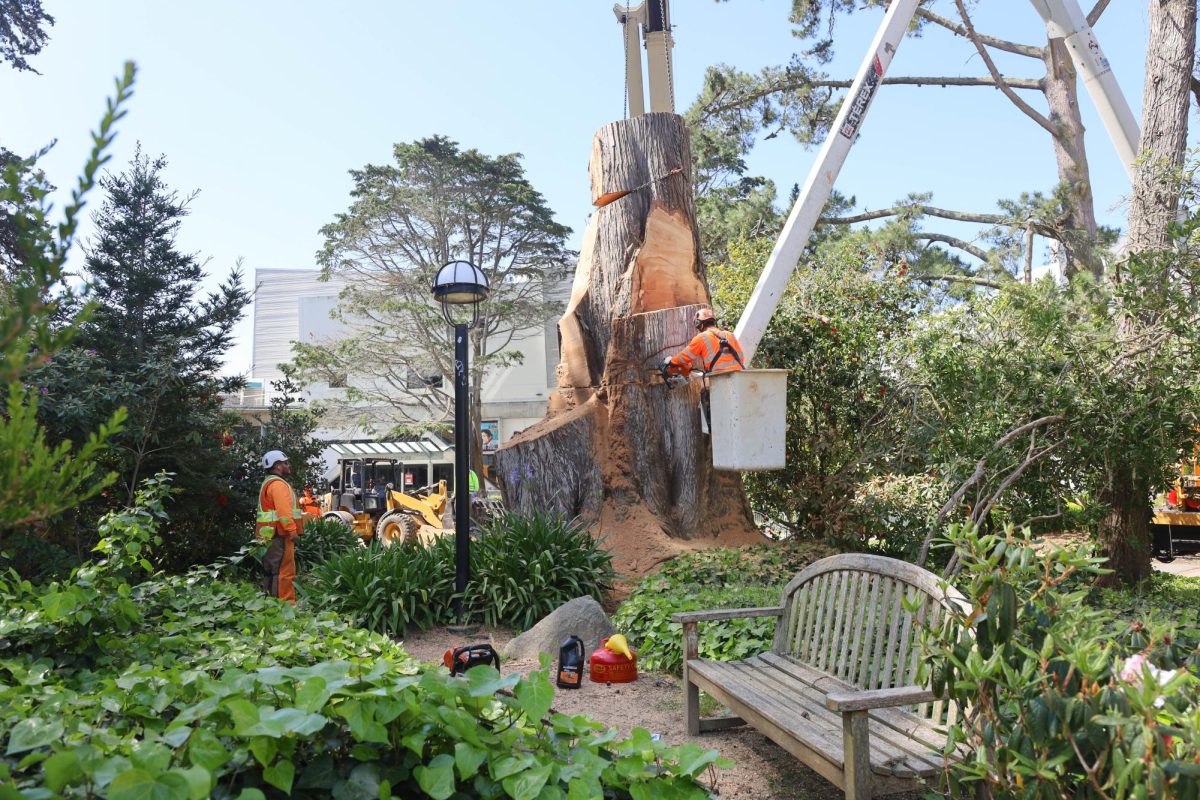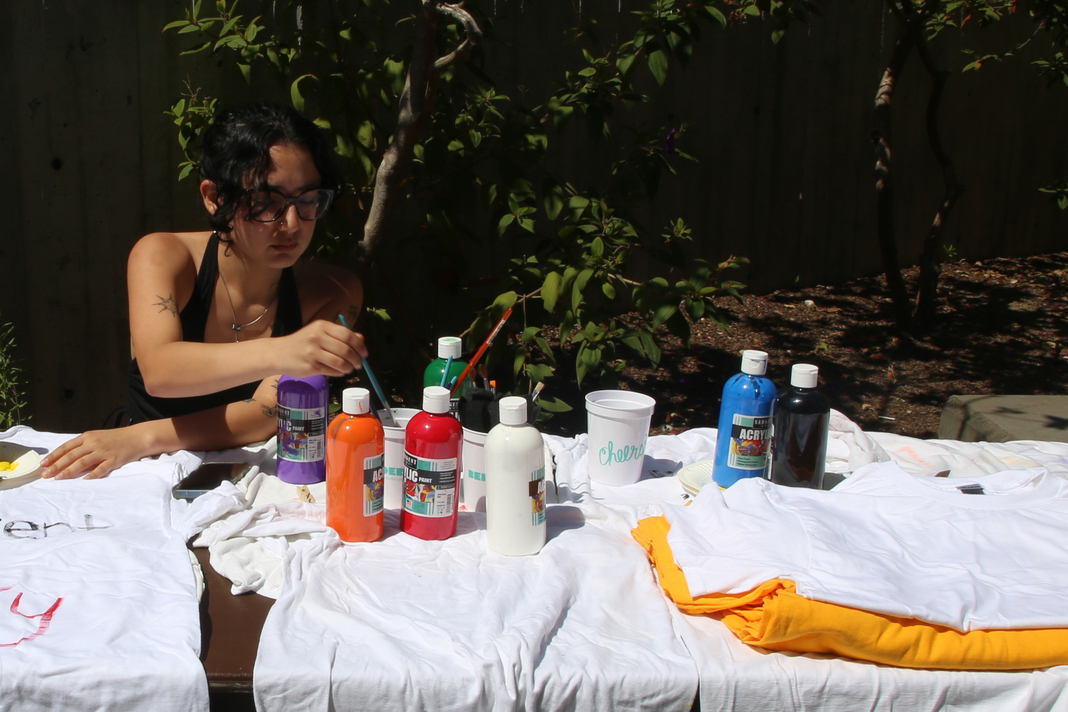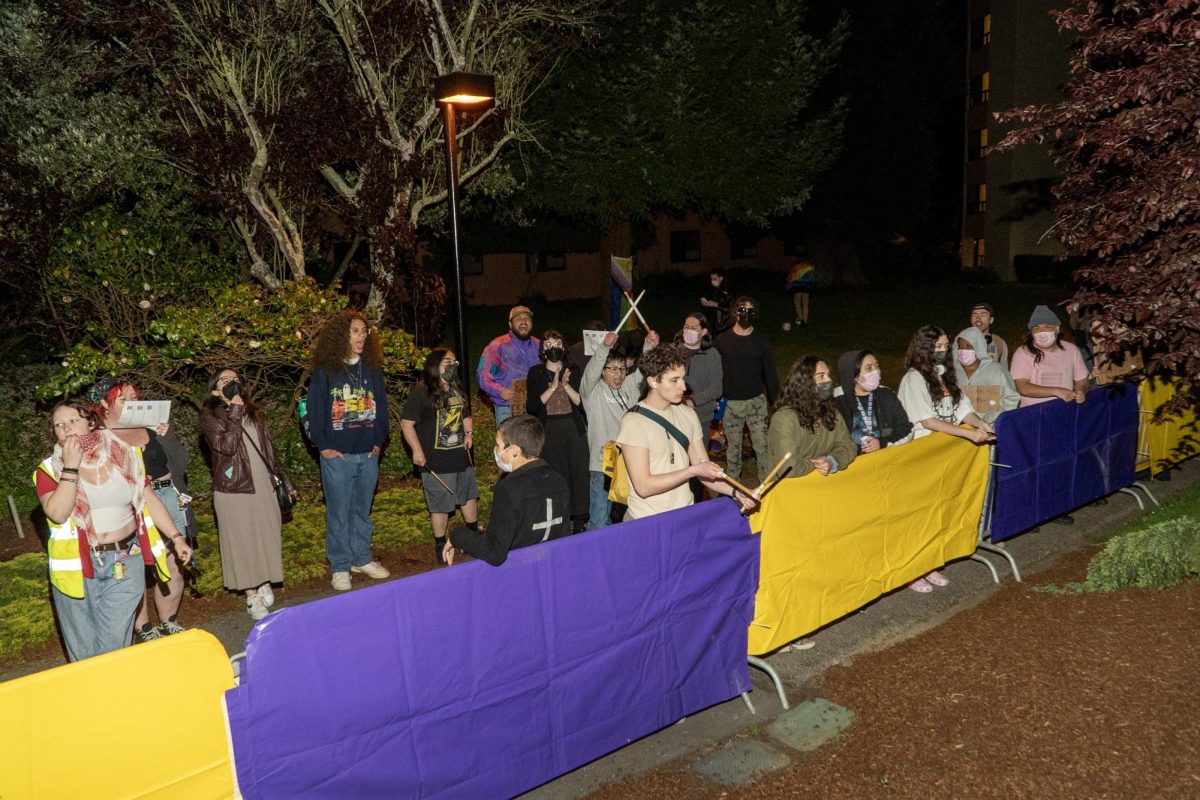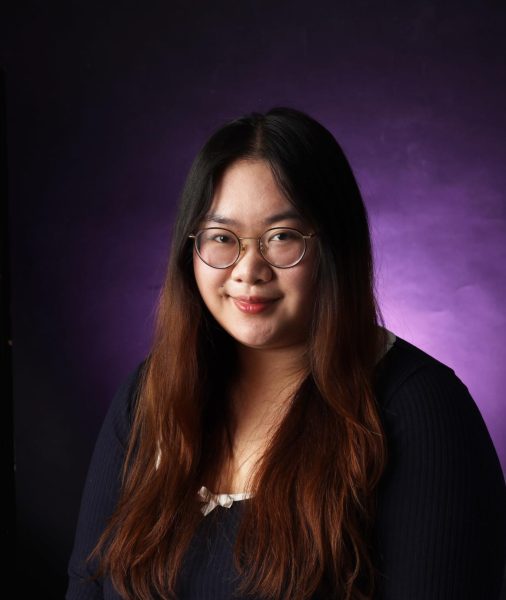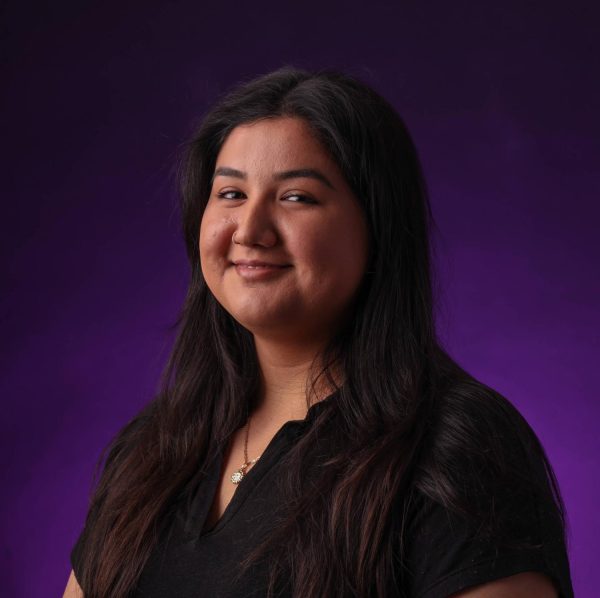On Tuesday night’s “Centering Trans Voices: A Panel on Lived Experiences Advocacy” event, students and professors gathered to share their narratives, perspectives and insight on trans experiences in light of anti-trans activism.
Hosted by the Queer & Trans Resource Center, the event occurred at the approximately same time as Turning Point USA’s event hosting Riley Gaines for the second time. Tria Rosa Valbuena, assistant director of the QTRC, said that the event was intended to provide a space for an alternate form of protest without further inciting conflict.
“To be clear, the intention of this event is, of course, there is a benefit of providing an alternate form of protest that Turning Point USA can’t utilize,” Valbuena said. “We want to provide an informal protest that doesn’t allow for direct conflicts that could cause people harm or incite further conflict, further media drama. We want the attention to be on the education and positivity.”
Boisterous laughter and loud chatter of 82 eager guests filled the University Club in the Cesar Chavez Student Center. The crowd quieted down once the speakers began their presentations.
The featured speakers included Michelle Gomez Parra, an assistant professor in Latino/Latina studies, Melissa Guzman Garcia, an associate professor in Latino/Latina studies, Carolina Prado, an assistant professor in Latino/Latina studies and William Clark, an assistant professor in English language and literature.

Kylani Alvarez, an office assistant at the QTRC, said the floor gave way for professors to speak on their expertise on gender theory and the trans community. Topics included the history of radical trans resistances, lived experiences of others and the speakers themselves, the importance of gender-affirming care, understanding the difference between gender and sex, and the settler-colonialism and denial of humanity.
Student speaker Eureka Soriano, a fourth-year student double-majoring in race and resistance studies and sociology, spoke on indigenous and spiritual concepts of gender.
“Spiritual leaders or shamans, they were seen as a bridge between the physical realm and the spiritual realm,” Soriano said. “They basically represented transgender nonconforming.”
The speakers brought in various forms of media to add to their presentations, ranging from poetry to documentaries. Clark talked about specific moments in a documentary titled “Framing Agnes” about a clinic from the 1950s in which UCLA provided gender-affirming care and how doctors are defining who gets access to care and on what terms. He encouraged thinking about how the documentary relates to how the government pushes universities and private corporations to adhere to threats of losing funding.
“Healthcare systems in Los Angeles, for example, stopped providing gender-affirming care to teenagers, to children, because of the threat of the federal government starting to take away some of their dollars,” Clark said.
Prado covered the importance of gender-affirming care and how to counter misinformation, such as the idea of gender-affirming care being only for trans people.
“Gender-affirming care is basic access to health care,” Prado said.
Alexa Huaman, director of the QTRC, emphasized the importance of the event for the LGBTQ+ community at San Francisco State University.
“Emotions can get high,” she said. “I’m happy people will be in this space versus at Turning Point. People feel angry but relieved that this event is going on.”
Other students came not as an alternate form of protest but to learn something about their LGBTQ+ peers. Joshua Jones-Trammel, a third-year Broadcast Electronic Communication Arts student, said he decided to attend the event to learn about trans activism and that he learned a lot from the speakers.

“I feel enlightened on the history of the trans community and of SF in general,” Trammel said. “I’m intrigued with the passion and the history behind it.”
Prior to the QTRC’s event, Trammel noted that he had attended the Riley Gaines event happening at the same time and spoke on his feelings about her returning to speak about transgender athletes in women’s sports again.
“It’s also very irresponsible for Turning Point to be holding such an event on a college campus where there’s so much diversity,” Trammel said. “I don’t think it makes sense.”
Soap Ware, a first-year student and intern at the QTRC, said the center is a safe space for the LGBTQ+ community at SFSU.
“It’s most important to have a space to feel more comfortable, building community is most important,” Ware said.
Valbuena said her favorite part of the QTRC is undeniably the people she has met and become close with, highlighting how the community that the QTRC has fostered leaves a lasting impact on its members.
“They’re my most powerful allies in my life,” she said. “I’m very grateful to have them.”




